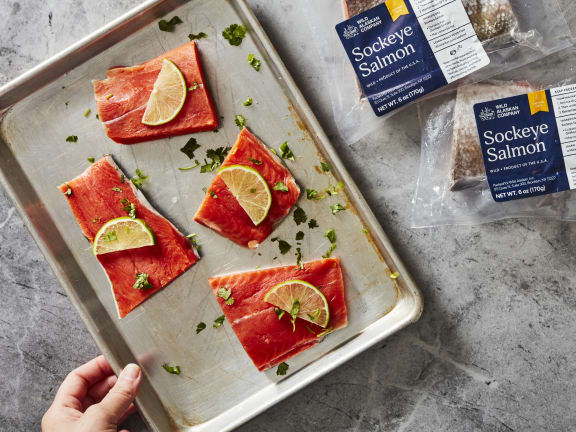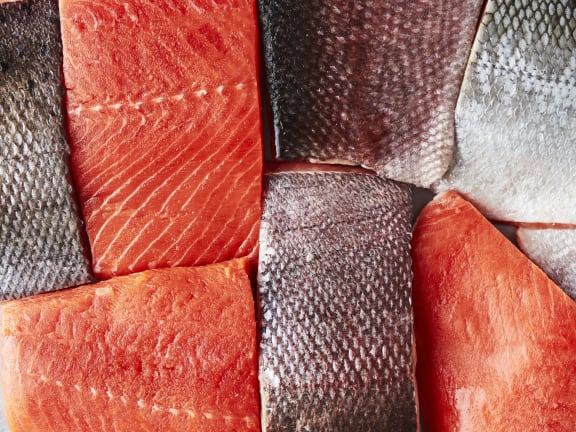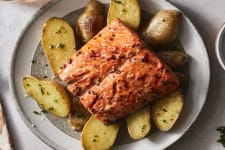Raw salmon is something you can expect to find in anything from tartares to sashimi platters to poke bowls. However, up until modern times, salmon was actually not a species of fish that you’d typically consume raw and unpreserved, even in places around the world where raw seafood is a culinary fixture. That’s because before the invention of freezers, raw salmon was not safe to eat (we’ll explain further on).
Today though, modern practices have greatly helped to reduce the risk of foodborne illness from salmon. But even with this in mind, should you eat salmon raw?
Is It Safe to Eat Salmon Raw?
You can eat raw salmon, but to eat salmon as safely as possible, it’s best to eat it fully cooked. Eating raw salmon may significantly increase your risk of foodborne illness. Each individual must determine his or her own tolerance for risk in consuming foods that are raw or not fully cooked.
Safest Salmon to Eat Raw
Wild salmon that has been frozen under specific, controlled conditions is generally safer to eat than salmon that was never frozen, since this process is designed to kill parasites. However, there is no way to recommend safe consumption of raw salmon, as there is always a risk of foodborne illness with raw proteins.
All species of seafood from Wild Alaskan Company are frozen promptly after harvest to eliminate the risk of parasites, and to preserve peak freshness and quality. Proper salmon thawing and safe seafood handling processes help to reduce the risk of other harmful pathogens that can cause foodborne illness. It’s important to emphasize that even the best freezing processes don’t entirely eliminate the risk of foodborne illness when consuming any food, whether it's raw or cooked.

Does Freezing Salmon Kill Parasites?
Yes, under specific, controlled conditions, freezing effectively kills salmon parasites. In fact, freezing any species of fish under these conditions can kill parasites that naturally occur in all types of seafood. This controlled process of freezing is just one way to significantly reduce the risk of foodborne illness, whether salmon is raw or fully cooked. Note that not all foodborne illnesses are destroyed through freezing.
Parasites are always present in a healthy, balanced ecosystem — they are a natural part of a wild salmon’s life cycle and do not harm the fish. However, when humans consume raw and unfrozen fish that contains active parasites, they can become ill.
Who Shouldn’t Eat Raw Salmon?
If you’re pregnant or need to consume a low-microbial diet for any other reason, you should never eat raw salmon. Anytime you eat salmon that is not fully cooked — a similar rule applies to meat, poultry, eggs, and shellfish as well — it opens you up to the risk of contracting a food-borne illness. Eating salmon that is fully cooked is the best way to reduce your risk of food-borne illness.
Note: Consuming raw or undercooked meats, poultry, seafood, shellfish, or eggs may increase your risk of foodborne illness, especially if you have a certain medical condition. The FDA recommends an internal temperature of 145°F for cooked fish.






